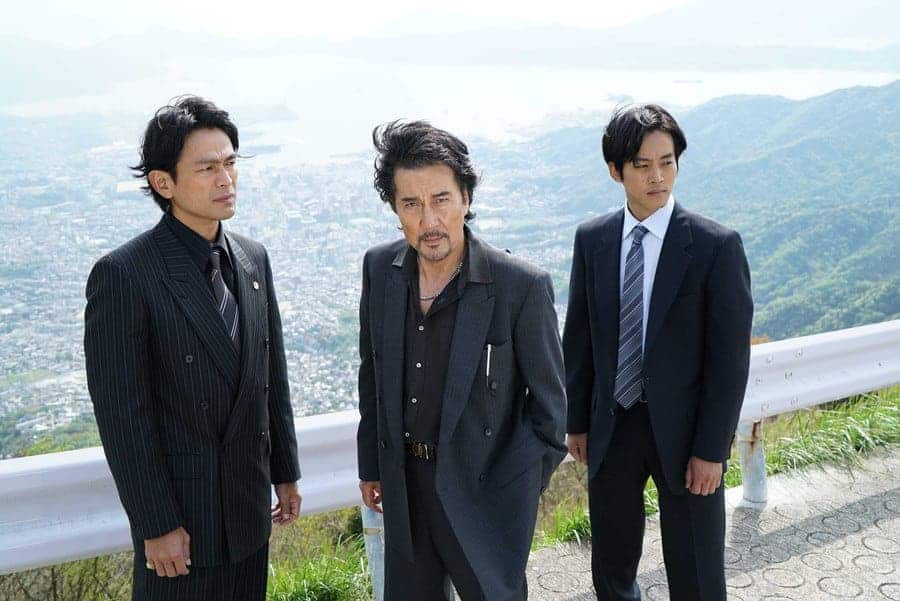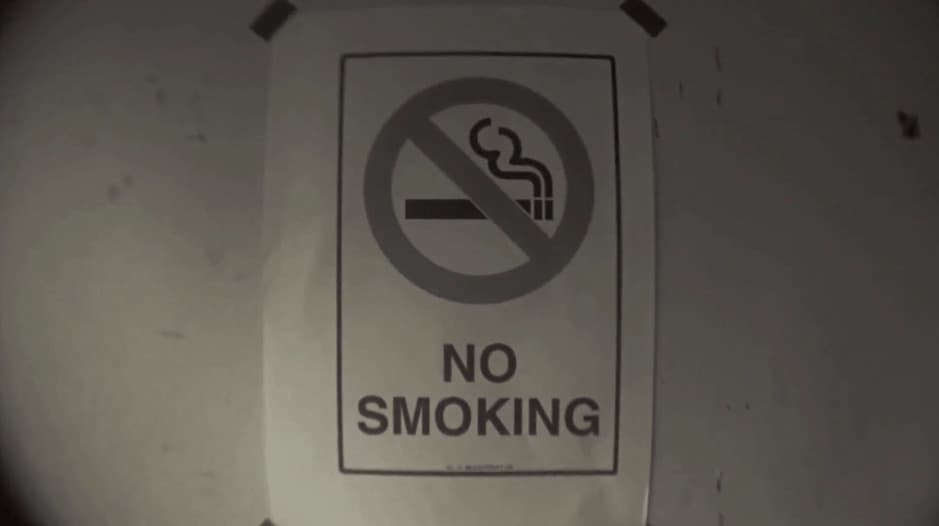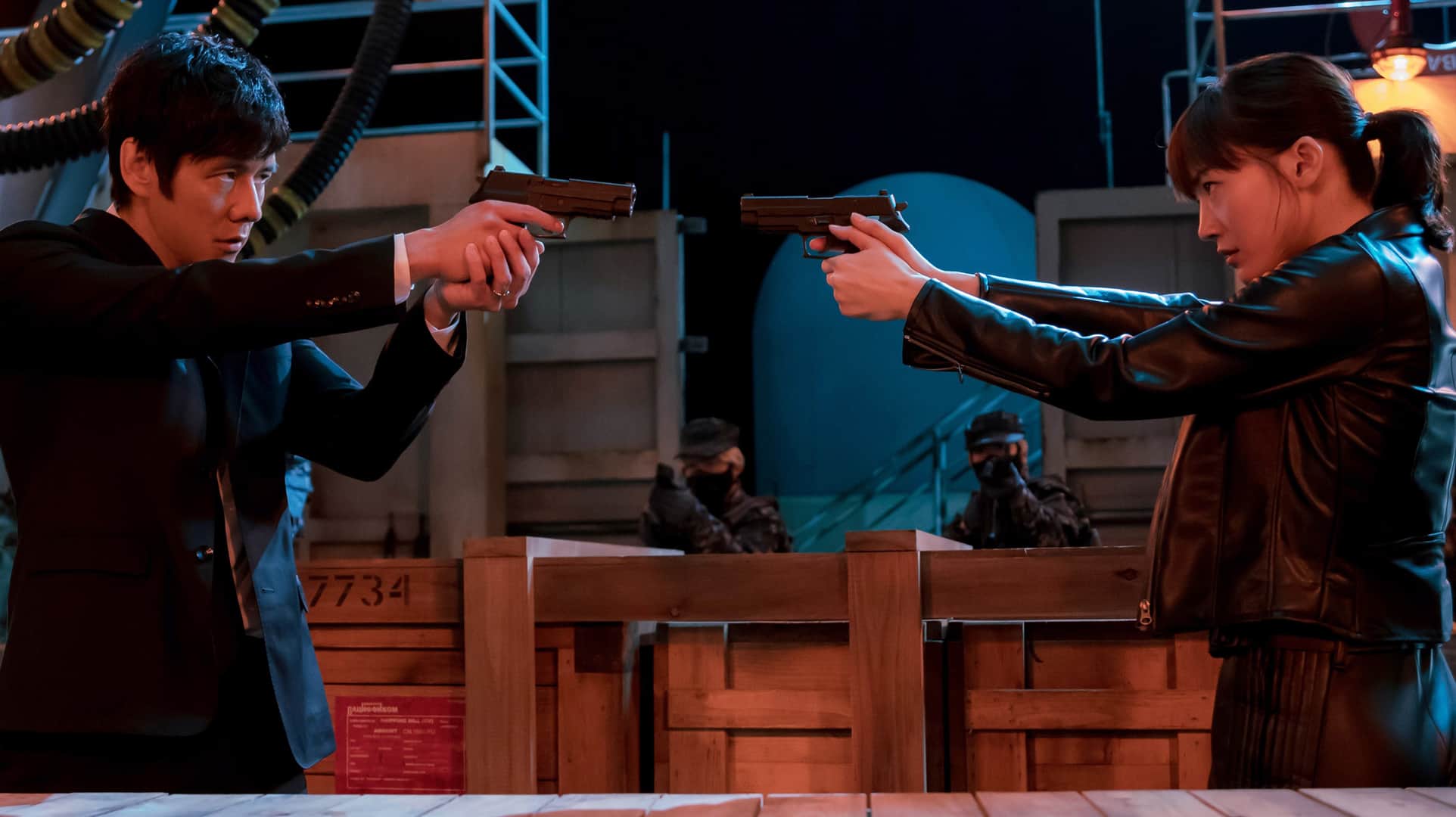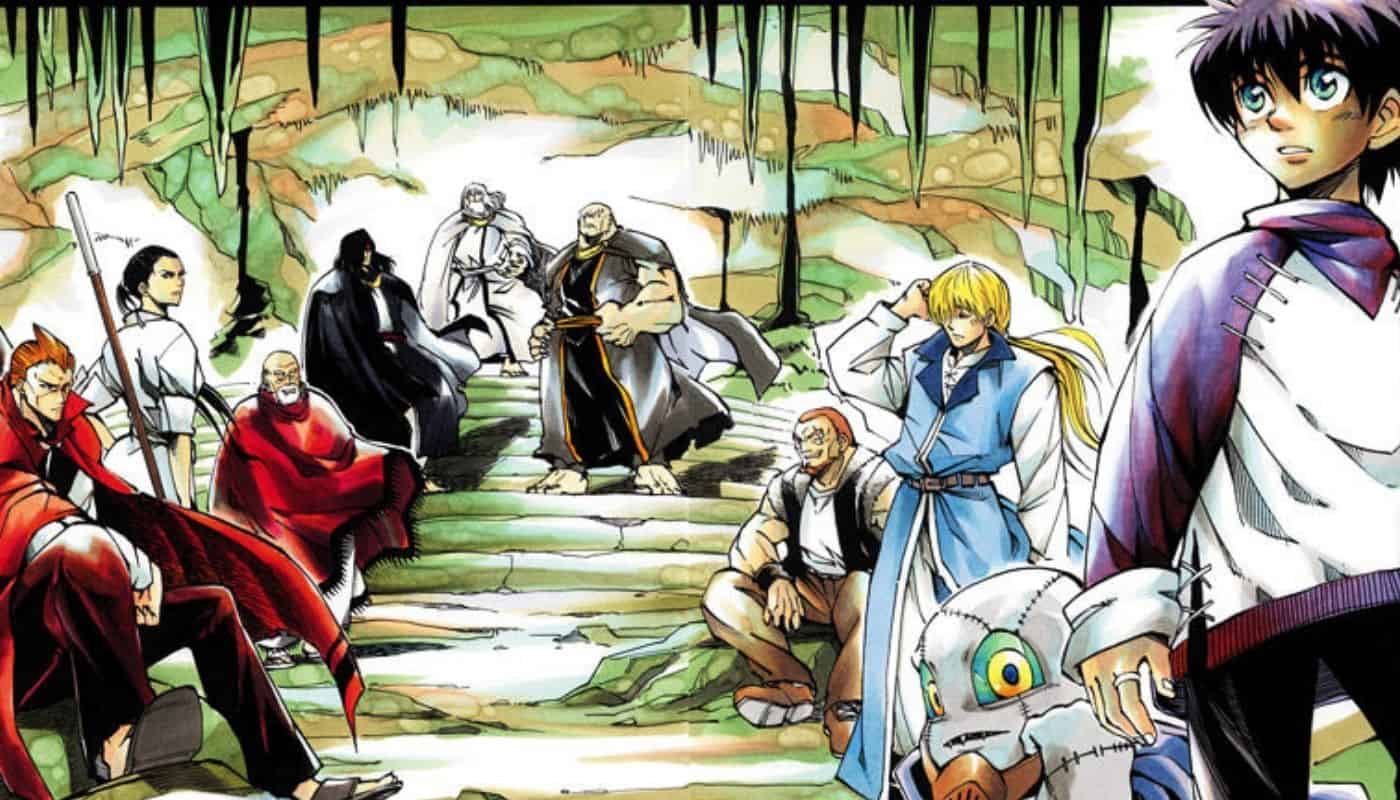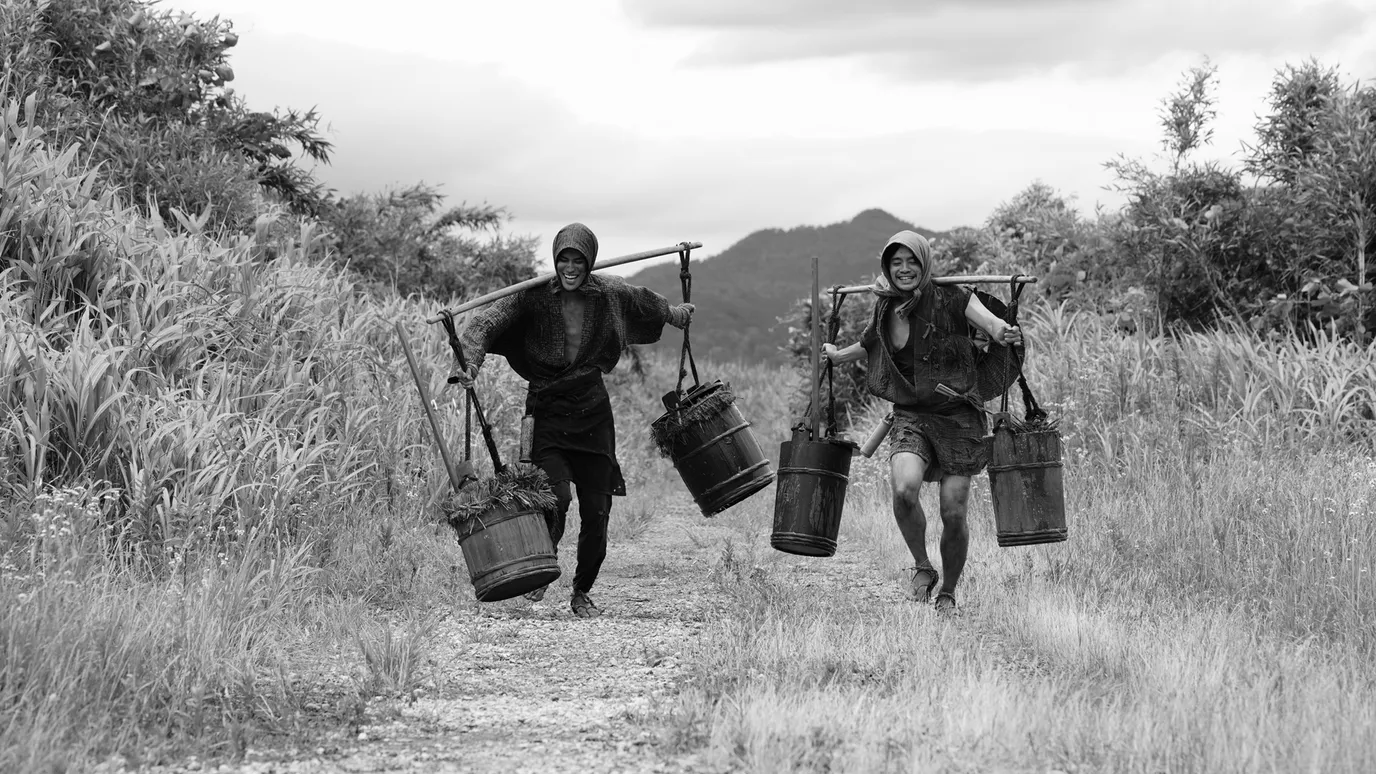After dealing with the Roman Porno Reboot, doing the same with the Yakuza film was the reasonable path for Kazuya Shiraishi, whose career seems to be picking up during the last few years, with productions like “Twisted Justice”, “The Devil's Path”, and “Birds Without Names”. Furthermore, his approach toward the Yakuza film, with a combination of Kinji Fukasaku's aesthetics as dictated in the “Yakuza Papers” and the style of “Training Day”, seems to be the way for the genre to go from now on. Let us take things from the beginning though.
“The Blood of Wolves” is screening at Five Flavours Festival
 The script is based on the novel “Korou no Chi” by Yuko Yuzuki and is set in 1988 in Hiroshima, prior to the enactment of the anti-organized crime law. Shuichi Hioka is the new guy in the East Kurehara precinct and is partnered up with Detective Shogo Ogami, whose ties with the local yakuza, and particularly the group Odani-gumi, are a known fact, even among his peers. Hioka, a university graduate on his road to the elite, is actually working for Internal Affairs, with his mission being to investigate Ogami. In the beginning, and during an investigation about a missing accountant, Hioka is shocked and disgusted by the way Ogami bends the rules, to the point of acting like a criminal himself quite frequently, and wants to arrest him on the spot. Saga, his direct higher-up, however, insists on him finding a diary Ogami keeps before commencing on the arrest. As a turf war between the Irako-kai and Odani-gumi commences, the two policemen find themselves directly involved and Hioka finds the truth behind Ogami actions, which also involve a local bar hostess, Rikako, and experiences a rather radical change in himself.
The script is based on the novel “Korou no Chi” by Yuko Yuzuki and is set in 1988 in Hiroshima, prior to the enactment of the anti-organized crime law. Shuichi Hioka is the new guy in the East Kurehara precinct and is partnered up with Detective Shogo Ogami, whose ties with the local yakuza, and particularly the group Odani-gumi, are a known fact, even among his peers. Hioka, a university graduate on his road to the elite, is actually working for Internal Affairs, with his mission being to investigate Ogami. In the beginning, and during an investigation about a missing accountant, Hioka is shocked and disgusted by the way Ogami bends the rules, to the point of acting like a criminal himself quite frequently, and wants to arrest him on the spot. Saga, his direct higher-up, however, insists on him finding a diary Ogami keeps before commencing on the arrest. As a turf war between the Irako-kai and Odani-gumi commences, the two policemen find themselves directly involved and Hioka finds the truth behind Ogami actions, which also involve a local bar hostess, Rikako, and experiences a rather radical change in himself.
Kazuya Shiraishi directs a very entertaining film, building on the two axes mentioned in the prologue. The “Yakuza Papers” one derives from the narration of the events that are not depicted on screen, as from a newspaper article, and the depiction of the Yakuza, with their constant thirst for violence, the extreme accents, and the games for power and domination between the various gangs. The “Training Day” axis derives from the relationship of the veteran Ogami and the “rookie” Hioka, with the first taking the latter for a ride in the complex politics that shape the ties between crime and punishment, and the actual situation in the area. Shiraishi, though, takes this concept a step further, by eventually presenting a second layer in Ogami, which offers a plot twist that turns the film completely around, both regarding the veteran, and his relationship with the rookie.

The medium of this change is Hioka, with Tori Matsuzaka presenting both the rookie and the disillusioned cop with equal elaborateness, despite the radical differences between these two personas. Shiraishi does a wonderful job in portraying this change through two violent scenes involving Hioka and a gangster in the beginning, and the owner of a pigsty, near the end. Koji Yakusho is outstanding as always as Ogami, both as a dirty cop and as something completely different, as revealed in the second part of the film. Yoko Maki as Rikako has the role of the catalyst, both in the plot twist and the gang war, and performs quite well in a role that begins as sultry but concludes in rather dramatic fashion. The secondary roles are also very convincing, with Renji Ishibashi and Yosuke Eguchi acting as the leaders of the two opposing gangs, Pierre Taki as Ogami's “agent” and Junko Abe as another part of the plot twist.

The production values of the film are also on a very high level. Hitomi Kato's exceptional editing functions quite similarly with the style implemented in “Yakuza Papers”, joining events and scenes in a rather enjoyable and quite fast pace. Kazuya Shiraishi included a number of crude and violent scenes (not too many, though) and Takahiro Haibara did the best of portraying both these, and the rest of the film's settings with a combination of artfulness and accuracy in the presentation of the era. His cinematography finds its apogee in the various scenes that feature many participants, in night clubs, reception halls, Yakuza offices and the police precinct.
“The Blood of the Wolves” is a great movie, definitely among the best of the year, and hopefully, a splendid beginning in the resurrection of the Yakuza film.


